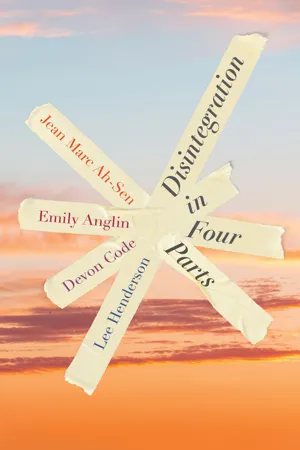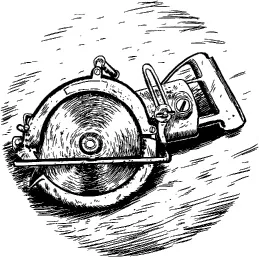Even as he flees Lysaker, Kurt Schwitters sings:
Kwiiee kwiiee
kwiiee kwiiee
kwiiee kwiiee
kwiiee kwiiee
kwiiee kwiiee
kwiiee kwiiee
What is the matter with you, Schwitters?
He’s heard this question before, many times. Ever since childhood. What’s the matter with you? What’s the matter with you, Schwitters?
Something must be the matter with Kurt Schwitters.
In Berlin they said, What is the matter, Schwitters? Are you a degenerate? Are you insane? Berlin, cultural capital of the known universe. He’s got a silver tooth in his jaw as keepsake from that night twenty years ago when a purebred Berliner in the audience at a cabaret coldcocked him midway through a performance of the Ursonate. The inventor of Merz, forever misunderstood.
Alas, Schwitters can’t escape the critics. He and his son might have both fled Germany but the epithets followed. Even his dear son Ernst, his own son of all people, will dabble in it. What is the matter with you, Schwitters? Ernst says. In Norway, he signs his photographs Ernst Guldahl, disguising his affiliation with Merz by the use of wife’s surname.
What’s the matter with you?
What is your emergency, Schwitters?
Are you damaged?
Are you drunk?
Are you deranged?
Yes.
I am Merz.
Everything is the matter with Merz.
Merz is the world.
Merz is Merz.
Rakete rinnzekete
rakete rinnzekete
rakete rinnzekete
rakete rinnzekete
rakete rinnzekete
rakete rinnzekete
The Kabelvåg post office receives an urgent cable before dawn. The noise awakens the clerk, who lives in the attic. The Nazis have bombed Oslo. Orders to follow. Early spring on the inside edge of one of the southern ports on the Lofoten Islands. People have lived here for thousands of years, and fisherman have fished these seas since long before the Vikings, but most of the surrounding mountains and valleys remain to be explored. Mankind has hardly touched Kabelvåg, and there is a serenity and a peace found in these lands. Kabelvåg barely knows it is part of creation. These pristine mountains still hold their secrets. The ocean teems with schools of skrei, the skies are full of cormorant and puffin, and the near silence in the sheltered bay of Kabelvåg echoes with ancient murmurs from the very beginning of time. Now that immeasurably small sound, which residents of Kabelvåg might privately think of as God, something about Kabelvåg more precious than all their belongings, that pure sound which they felt more than they heard, is bare and exposed. Kabelvåg is unprotected against the roar of German bombers clashing out at sea with British warships. Attacks and counterattacks shake them inside their bomb shelters. And when the fight moves elsewhere there’s the sounds of the town carpenters and steelworkers.
In the coming days, they learn their first command is to prepare lodgings for the internment of illegal aliens. German citizens are among the refugees from Oslo and Southern Norway being sent their way. As the first signs of war arrive on their beaches, a well-appointed, newly decorated military man, until recently a local folk arts scholar, waits to greet the fleeing refugees aboard a cod-fishing boat presently docking. From the shining calfskin boots, wool slacks, the dark blue wool overcoat, the fresh lily in the breast pocket, purple pins in his tie knot, and barbered face and neck, Captain Trygve Wicklund looks every bit like it’s his first day in uniform.
Welcome to Kabelvåg, he tells the first man to appear out of the hull. I am Headmaster … but I should say you shall know me as Captain Trygve Wicklund. Please, watch your step and please queue up over there so that I might –
His first refugee leaps onto the dock and embraces the captain. Loses his balance, tips over, Wicklund helps him regain his footing. I’m not used to a steady floor, says Schwitters. He is a tall man, heavyset, like a plinth, with all his weight on his heels. His eyes are bright and glassy blue like the eyes in a doll. His grin is disconcerting Captain Wicklund. Schwitters takes a deep, glorious inhale until his lungs are busting, as if he’d held his breath the entire voyage at sea.
I am Schwitters. Kurt Schwitters. German citizen, but enemy of the Nazis. Artist of the avant-garde. Cultural refugee. Greetings, my friend, from the landless dispossessed. Here we are, I don’t know where, but at the very edge of exile. Let us bless the skipper and his sturdy cod bucket for bringing us out of the hairy soup alive.
Our camp has beds for a hundred and twelve. How many are you? All German?
An incredible assortment of forty-two souls, Schwitters tells him. Painter, poet, inventor, collagist, sculptor, carpenter, carver, portraitist, belletrist, dancer, singer, actor, and now that I’ve introduced myself let me tell you a little about some of the others on board …
Forty-two, the captain says. He is astonished. Such a small boat. He looks beyond Schwitters and mutters something about how he would like to make an announcement once everyone’s disembarked.
Schwitters says, Of course you would, and thank you. Ah! Here come the photographer and dancer, Ernst and Esther Guldahl, my … son and daughter-in-law. Lovely couple. She’s from Oslo. He took her name when they got married. Quite natural. In art circles, the Schwitters name is synonymous with Merz. Ernst … this is the captain … Captain ah … I already forget.
Wicklund. Captain Wicklund. Now please, move aside. Queue up here.
Ernst, shaking, shivering, mouth hanging open and tongue threatening to fall out of it, he reaches out with one bone-rattling hand and takes the captain by the wrist, leans in to tell him in all confidence and with an eye-watering case of halitosis, I’m really more her husband than I am his son.
Ernst hasn’t held down much more than a saltine since they fled from Lysaker a month ago, seasick, and no appetite for dodging naval battles and hiding under fog from Nazi warplanes. Deadly draining stuff. And slow. They might as well have walked most of the way. A man’s constitution is truly tested at sea during wartimes. It turned Ernst Guldahl into a motion-sick stick of a man who can barely hold himself upright under the weight of a worn-out pinstripe suit and second-hand black sable overcoat. Clothes that fit him a month ago now look boxy and clownish. In peacetime, he might pass for an American matinee idol in the role of star reporter, with a camera slung around his chest on a leather strap like a jungle knife over a crisp white shirt, his sleek black hair tossed up and back in seductive waves. But with his hair hanging down in oily strands over his chalky face, mouth breathing, eyes bloodshot from exhaustion, hobo beard, Ernst looks more like his dad’s degenerate German art than a pedigreed calendar photographer. The captain lifts him off the fishing boat and onto the dock like a corpse or a fisherman’s mystery catch.
Esther Guldahl’s a sprinkle over a hundred and fifty centimetres tall; her hairbun can’t tickle her husband’s chin if she stands in front of him. But despite her petite stature and the wicked boat ride, she’s walking fine, in fact, with a dancer’s hop, perfect balance, head held high, ears pricked, eyes afire, and complexion hale, and still strong enough to support her husband’s weight when his knees give out. She was raised in the avant-garde and wanted to marry within the avant-garde, so she found a man fleeing the avant-garde.
The view is of snowy mountainous islands and the placid waters between them.
What an eerie afternoon, Schwitters says with a shiver.
Wicklund pulls a gold-plated timepiece out of his breast pocket and checks it. It’s three thirteen in the morning, he asserts as if in agreemen...





